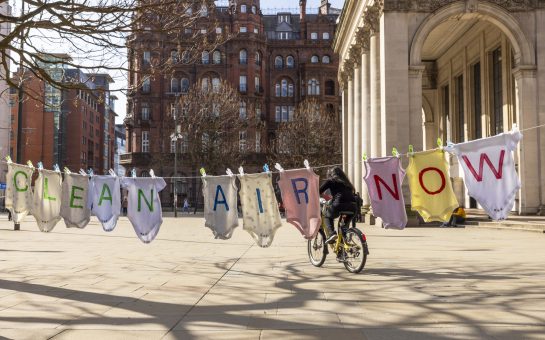Mental health problems are sometimes brushed under the carpet, but tackling the stigma surrounding the illness is something that a Greater Manchester charity is trying to tackle.
Tricia Hornby, chief executive of Rochdale and District Mind, has been involved with the charity since it was set up 25 years ago.
She discovered the charity through her own experience of post-natal depression in 1988 and was determined to tackle the stigma and make a difference.
“It is something that is close to my own heart,” she said.
“I have lived experience of mental distress and am passionate about reducing the stigma and discrimination people with mental health problems experience.
“They helped me at that time and I really wanted to give something back, but make sure people had a different experience to mine.
“That passion has driven me over the last 30 years and listening to what people say about their experiences and trying to give people choice.”
Since joining, she has overseen the charity’s growth to now offer a wide range of mental health services and employs more than 45 people.
Services developed include advocacy, community services, BME development and community businesses, something that has been the product of much hard work throughout the charity.
“I have worked hard to break down the barriers that people with mental health issues face,” Tricia explained.
“I am a committed campaigner for mental health and have established many new services since being at Rochdale Mind to establish it as a leading service provider in Greater Manchester.
“We’ve developed some community business projects so we have four cafés where we provide work and training and real work experience for people.
“We’ve also developed a horticultural project in conjunction with another organisation called the Hourglass and that’s a fantastic project.
“I haven’t single-handedly developed all of those, but we provide quite a broad range of different types of services which have really been in direct response to local needs.”
It has certainly made a difference to residents of Rochdale, Heywood and Middleton with around 2500 people being treated by the charity last year.
Mind is different to other charities in that referrals from GPs are not needed to use their services, something Tricia feels helps people on their road to recovery.
“In lots of places, people have to be referred by their GP – we accept self-referrals here and people can come to us in a fairly easy and speedy process,” she said.
“People don’t have to go through their GP necessarily or be referred as people can come and refer themselves.
“Taking that step is often very difficult for people and we try and make it as comfortable as possible.
“We’re very much about prevention and early intervention and preventing people’s mental health getting worse or escalating so we do a lot of work on the early stages.”
“I’m still very passionate about mental health and people having choice and working with them collaboratively to support them on their terms.”
Depression in all its forms is one of the more common mental health issues with around 6 million people suffering from it each year in the UK.
In terms of welfare benefits and loss of productivity at work, mental illnesses are estimated to cost the economy an estimated £77billion annually.
Mental illness is indeed the highest source of expenditure for the NHS, ahead of cancer and tumour treatment and circulation problems, and is something Tricia is not surprised about.
“It doesn’t surprise me, and in mental health circles is something that is pretty well known,” she said.
“Here at Mind, and in conjunction with other providers and commissioners, we are working very hard to develop a strategy to develop mental health and wellbeing services across the borough.
“We have a lot of relationships and collaborative partnerships, and I think we are striving to make a difference.”
For more information about the charity visit http://www.rochdalemind.org.uk/
For more on this story and many others, follow Mancunian Matters on Twitter and Facebook.



